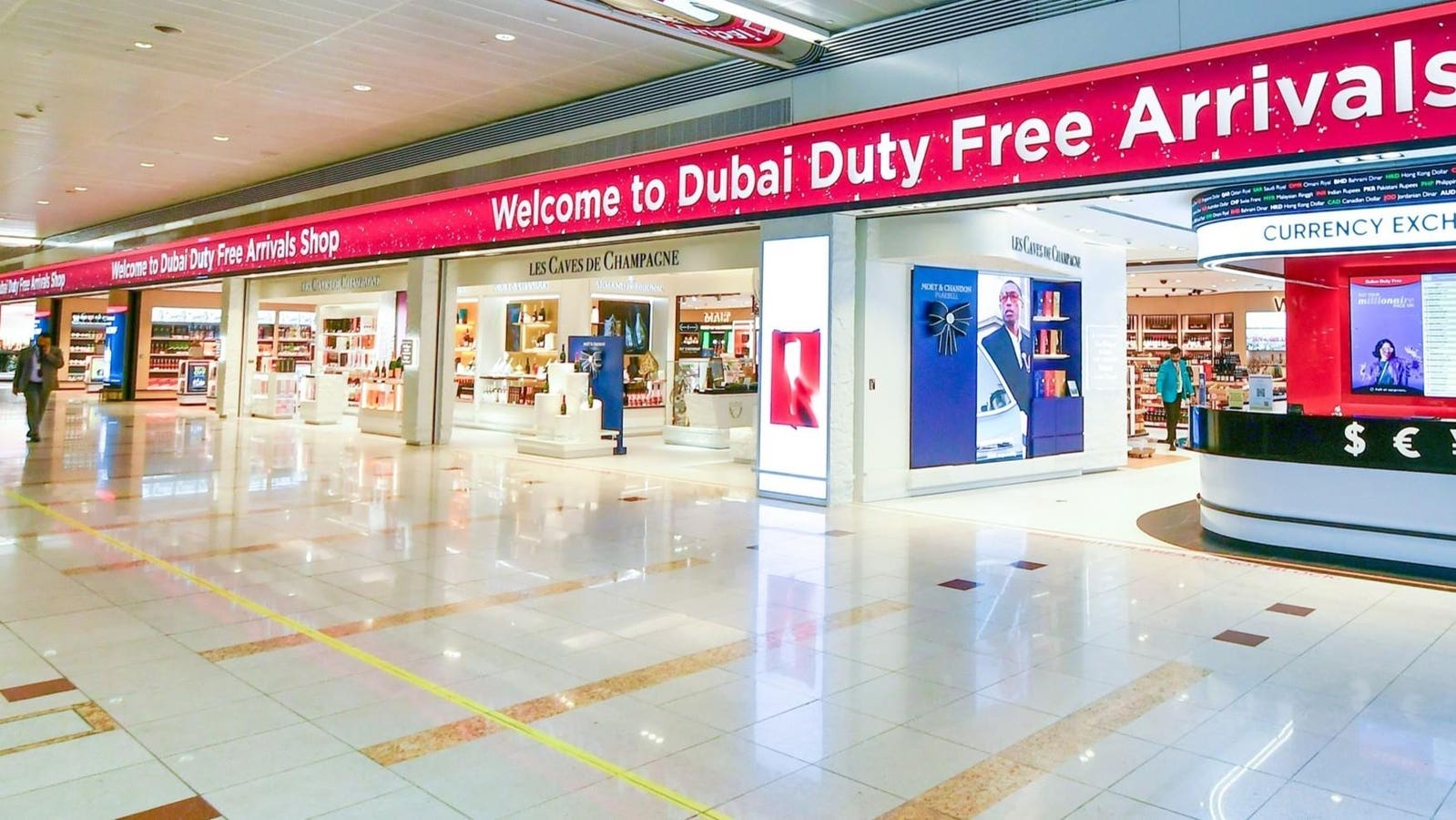Large new arrivals stores have boosted sales for Dubai Duty Free.
Refurbishments and retail expansions by Dubai Duty Free (DDF) at Dubai Airport—the busiest international airport in the world—have paid off as the retailer generated record half-year sales reaching 4,118 billion UAE Dirhams ($1.13 billion), up by 5.3% year-over-year.
The craze for Dubai chocolate was a big factor with 2.5 million bars sold in the six months to June, pushing its share of the confectionery category up to a whopping 40%.
The world’s biggest airport retailer operating in a single country, added about $57 million to last year’s half-year result with much of that extra revenue coming from a surge in travel over the Eid holidays (at the end of March and the beginning of June) and some early summer getaways at the airport. The airport retailer saw “robust growth” in April, May and the first half of June.
DDF’s managing director, Ramesh Cidambi, said in a statement: “While we await the final passenger numbers for June 2025, the spend per passenger is likely to be better than June last year. This performance is a testament to our team’s hard work and the strength of Dubai as a global travel hub.”
Among the major leaps forward have been the successful renovation of three arrivals shops in the first half of the year which will help deliver extra sales. For example, in May these stores across all three terminals at the airport posted a combined growth of 6.3% following the completion of refurbishments.
Second-half optimism—with caveats
DDF is now gearing up for a busy summer at Dubai International (DXB). Around 3.4 million passengers are expected to travel through the airport between June 27 and July 9 alone—the start of the season—with daily volumes forecast to average over 265,000.
Cidambi cautioned on summer spending because, while volumes rise, this doesn’t always translate into spending. In an interview with Dubai One TV, he said: “Summer can be complicated. You get a lot of passengers, but not necessarily as much spend: a family of four will not spend the same as four individuals.”
Ramesh Cidambi: “Summer can be complicated. You get a lot of passengers, but not necessarily as much … More
State-owned operator, Dubai Airports, also noted that in June “the wider regional situation”, referring to the Israel-Iran 12-day war, had led to some delays and cancellations across the network. U.S. sanctions on Iran have followed the ceasefire on June 24, and the region remains febrile, which could cast a shadow across DDF’s second-half ambitions.
Dubai Airports said: “DXB continues to monitor the situation in close coordination with authorities and airline partners, prioritizing the safety of all guests and employees on the ground and through to take-off.”
DDF has some cards up its sleeve in the form of three luxury boutiques opening in Terminal 3 (Concourse A)—the constantly innovating Louis Vuitton, Chanel, and Cartier—which are hoped will help spike sales. Cidambi said: “We are looking forward to an equally busy second half.”
In the first six months of 2025, spending across all of DXB’s terminals increased. Duty-free sales in T3 rose by 6.4%, and by 5.3% in T1. All key passenger regions showed positive sales during the period, with Europe up 16.9%, Russia up 4.4%, the Middle East up 8.2%, with the Indian-sub continent trailing at 1%.
Transition times beckon in Dubai
DDF operates at both Dubai International, where the vast bulk of DDF’s revenues come from, and at Al Maktoum International, the United Arab Emirates’ eventual five-runway airport where all of Dubai’s airport traffic will transfer by 2034. At that point DXB will close to passenger traffic.
In 2024, DXB welcomed a total of 92.3 million passengers, the highest annual traffic in its history. Al Maktoum, also called Dubai World Central, is shaping up to be an even bigger successor of its sister gateway and is now being expanded thanks to an investment injection of $35 billion, announced in May last year.
For now, DWC primarily serves cargo, charter, and seasonal flights, along with private aviation. Its passenger operations are limited, with just over one million passengers processed last year, which was about double that in 2023, mostly via low-cost carriers. According to Dubai Airports, over 700,000 of the 2024 numbers were Russians who are traditional high spenders in duty-free.
Those annual numbers will ramp up quickly in the coming decade and DDF will play a central role in shaping the retail landscape of the mega-hub, which has a projected capacity of 260 million passengers annually on final completion.
For more stories on Dubai Duty Free, follow this link.




